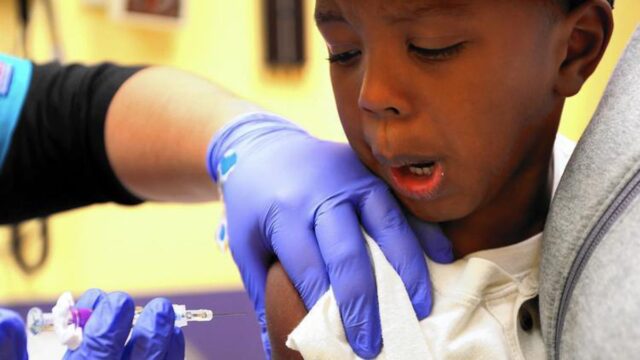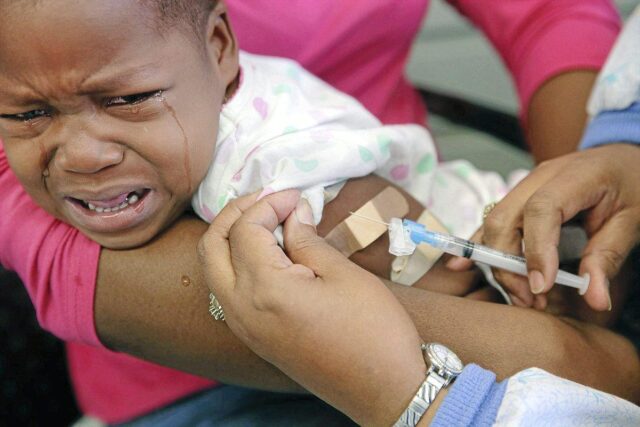If you have ever had to hold down your child during a doctor visit as the nurse tries to administer a shot, read on! With the COVID-19 vaccine now approved for children ages five-years-old to 11, here are five tips to help a child with needle phobia. Hopefully, you can avoid as much stress and tears as possible.

“At least two-thirds of children and one-fourth of adults have a fear of needles,” reports the American Academy of Pediatrics (AAP).
“Kids can be fearful about shots for a number of reasons, including a prior traumatic experience with vaccinations or other medical procedures; a caregiver’s reaction/actions during shots; a developmental stage; or as a result of underlying mental health issues, like an anxiety disorder,” pediatrician Dr. Whitney Casares told Romper in a recent interview.
So, when the big day rolls around for them to get their COVID-19 vaccine, or for that matter, any vaccine, here are five tips, according to the experts, to help them make it through.
1. Lead by example.
“Get your shots with your kids in tow,” Pediatrician Dr. Natasha Burgert said in a piece for Forbes Health. “If they see a parent successfully get a shot, that helps to break down the association of shots with badness.”
2. Keep yourself calm.
“Children look to their parents or use social referencing to interpret ambiguous or unfamiliar situations,” said Renee Schneider, Ph.D. is the Vice President and Head of Therapy at Brightline in her Romper interview. “A shot isn’t an everyday occurrence and so your child will likely look to you to decide whether to be scared. If you look calm, your child may be able to stay calmer.”

3. Distract.
Break out the screens for a visual distraction. Play a game or watch a video. Create a distraction so that their minds may be off of what’s happening.
4. Give the clinician a heads up about your child.
If for some reason you are going to a clinician that is not your regular doctor, give them a heads up about your child’s phobia. Let them know that they may be nervous and afraid of shots. A bit of reassurance from the person holding the needle can also go a long way. And of course, they may have a few tricks up their sleeves as well to help.
5. Let kids have a voice.
“Above all, giving children a sense of control is the most important during shot administration,” Casares tells Romper. “This can include letting them choose their positioning, giving them options for distraction, or allowing them to pick from tools like cold spray or shot blockers to help them cope more effectively.”

Do you have some tips that you’d like to share? Sound-off and comment below. Let us hear from you!







